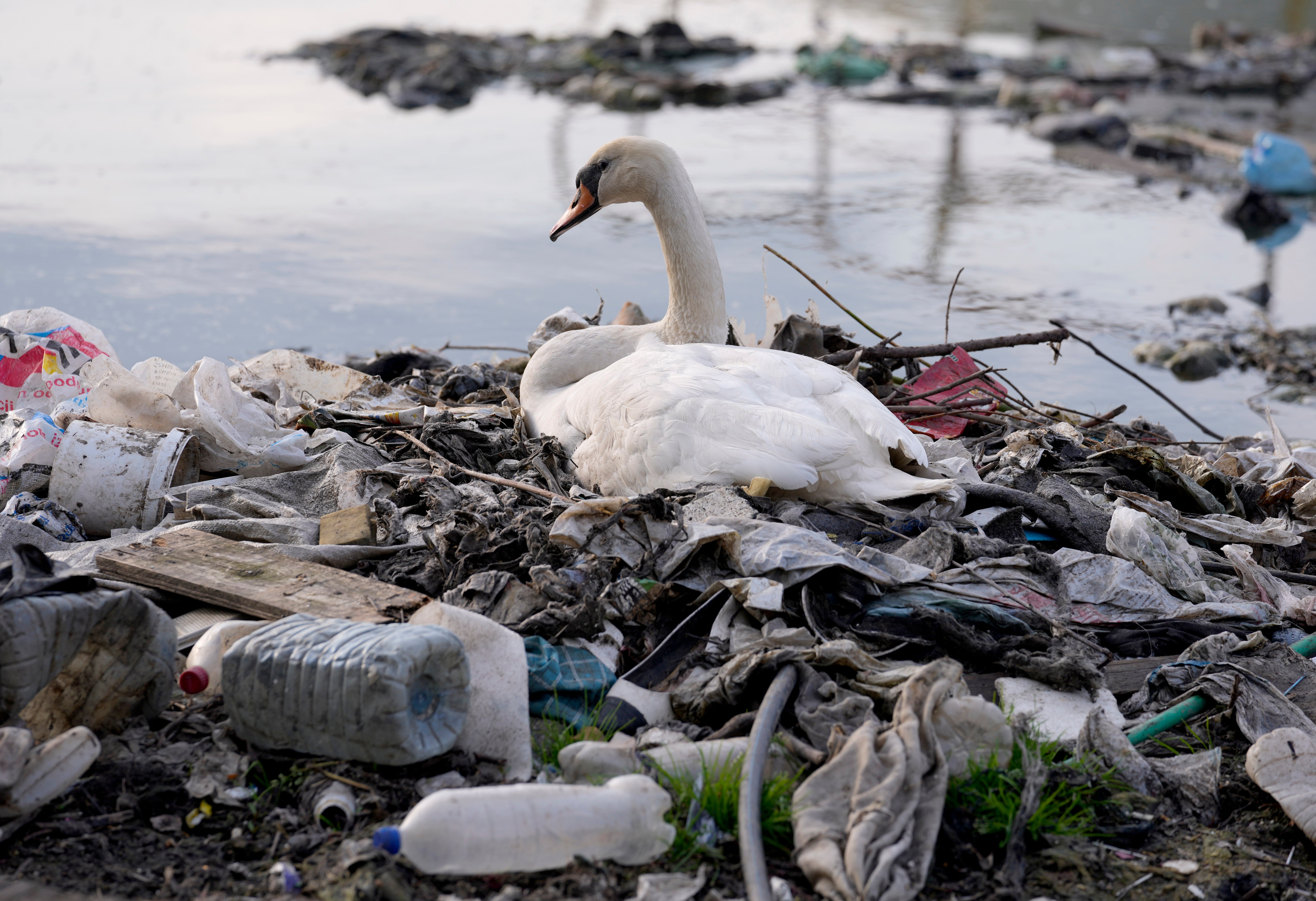Scientists demand cap on new plastic production to end pollution crisis
‘If production just keeps growing and growing, we will be faced with a truly Sisyphean task,’ said one expert

Scientists are calling for the production of new plastics to be capped in a bid to cut pollution and tackle the climate crisis.
Governmental negotiations on the United Nations’ decision to adopt a global treaty to end plastic pollution are set to commence on 30 May – bringing about historic debates on the types of measures needed to pull the plug on the polluting of air, soils, rivers and oceans with plastic debris and microplastics.
In anticipation of the talks, an international group of scientists and experts have written a letter to the journal Science, in which they put forward an argument to tackle the issue from its source, by regulating, capping and eventually phasing out the production of new plastics.
Melanie Bergmann, of the German Alfred Wegener Institute, who was the original architect of the letter, has argued that recyling plastics is not enough in combating the damage intensive production inflicts on the environment.
She said: “Even if we recycled better and tried to manage the waste as much as we can, we would still release more than 17 million tons of plastic per year into nature.
“If production just keeps growing and growing, we will be faced with a truly Sisyphean task.”
According to research published in Science in 2020, plastic emissions can only be cut by 79 per cent over the next 20 years if all solutions today are implemented – including replacing some plastics with other materials, and improved recycling and waste management.
Bethanie Carnet Almroth, of Sweden’s University of Gothenburg, added: “The exponentially growing production is really the root cause of the problem, and the amounts of plastics we have produced thus far have already exceeded planetary boundaries.”
She continued: “If we don’t tackle that, all other measures will fail to achieve the goal of substantially reducing the release of plastic into the environment.”
The group of experts – who have leant their signatures to the letter from Canada, Germany, India, Norway, Sweden, Turkey, the UK and the US – argue that the phasing out of new plastic production from fresh feedstocks should be part of a systemic solution to end plastic pollution.
And the scientists say this approach is supported by the best sceience available at this point in time, which is also in line with what political and legal experts proposed in Science last year.
In addition to measures to address the comsumption and demand end of the issue, such as taxation, the experts have said a comprehensive approach must also be considered for the supply end – the actual amount of plastics produced and put on the market.
The graudal cutting back of production of new plastics will bring with it myriad societal, environmental and economic benefits, the scientists add.
Sedat Gündoğdu, of the Cukurova University, Turkey, said: “The massive production also feeds the plastic waste transfer from the global north to the south. A production cap will facilitate getting rid of non-essential applications and reduce plastic waste exports.”
“We gain a lot of benefits from plastics but reducing production will increase the value of plastics, boost other measures to curb plastic pollution, help tackle climate change and promote our transition to a circular and sustainable economy,” added Martin Wagner, an ecotoxicologist at the Norweigan University of Science and Technology.






Join our commenting forum
Join thought-provoking conversations, follow other Independent readers and see their replies
Comments